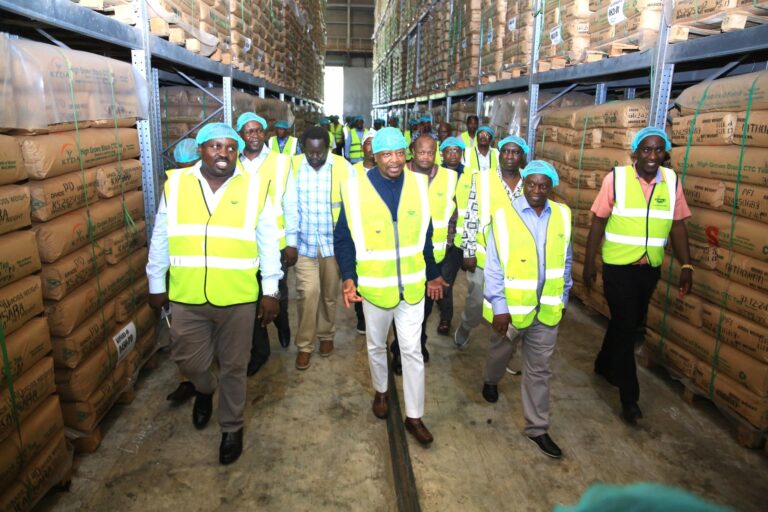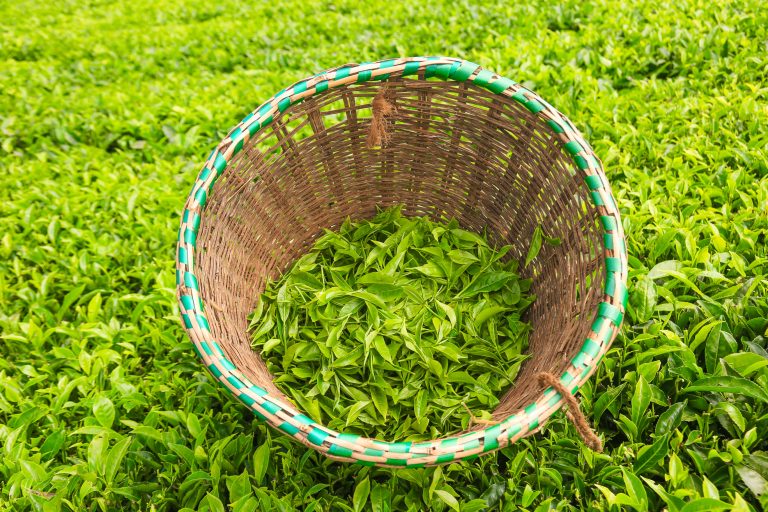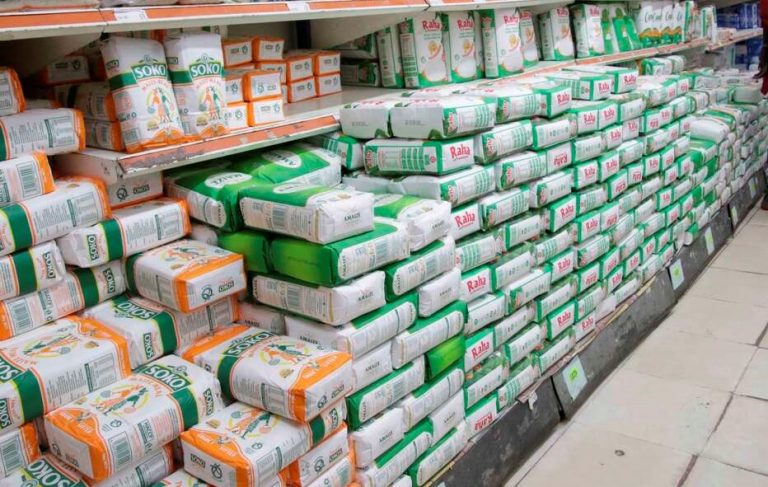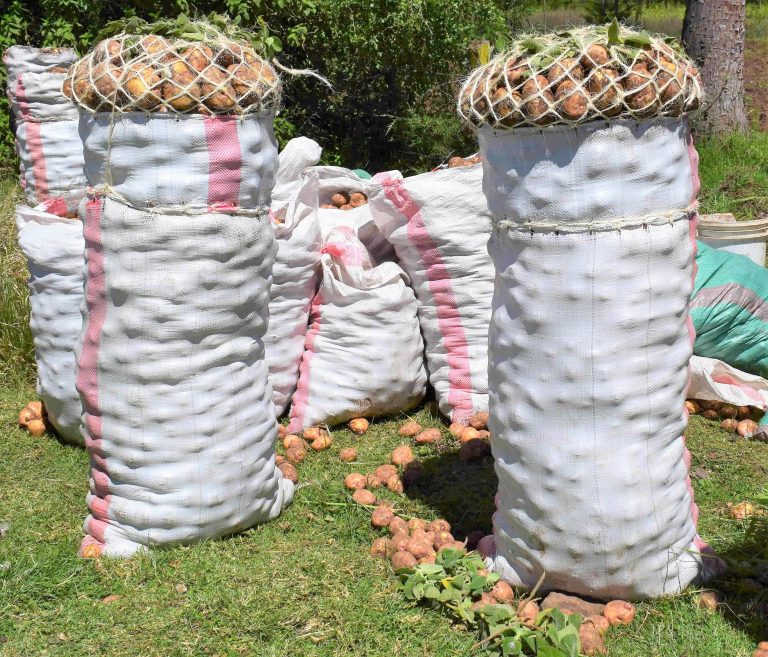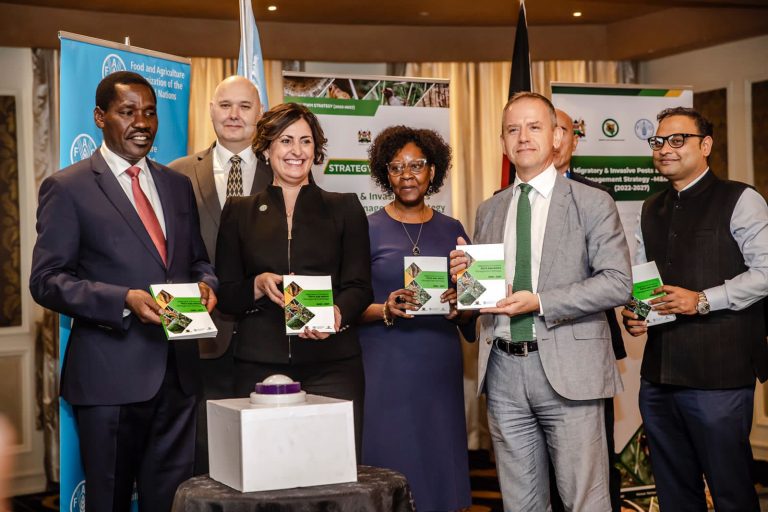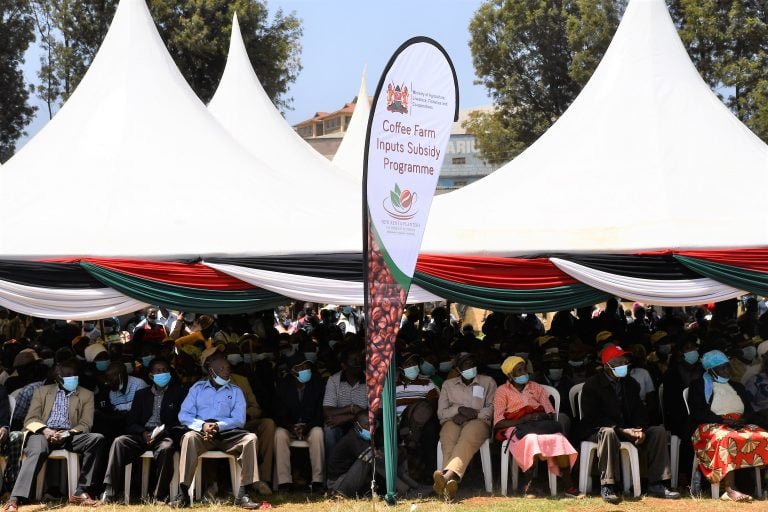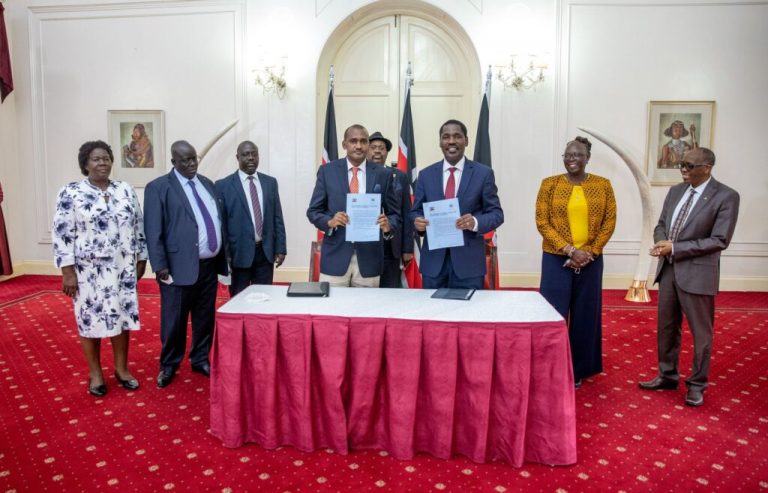As he launched the revised draft of tea regulations today, Agriculture CS Peter Munya didn’t mince his words as he called out Kenya Tea Development Authority (KTDA) on the crisis in the tea sector. The proposed tea regulations will see the total overhaul of the corporation including an audit which it has fought off vehemently in the past. Anybody who accused it of any wrong doing was met with court papers and ordered to keep off its affairs. At one time the Managing Director asked the media why they were interested in the low tea prices while those of milk and other produce were also not stable.
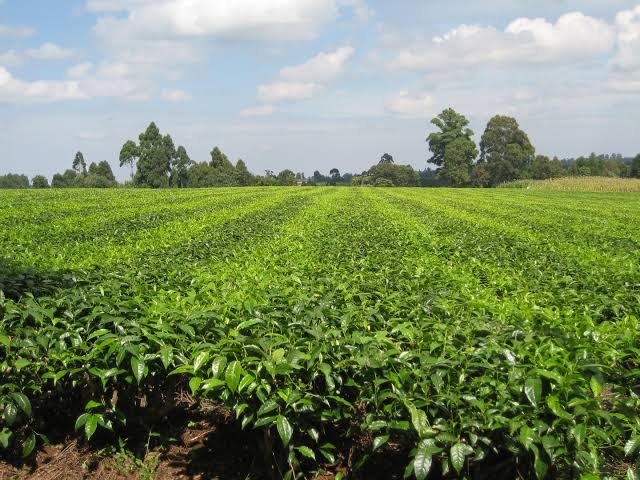
But today, the CS tabled a report where he pointed out areas he says KTDA and its subsidiaries had abused its market power in the tea value chain. Below is an excerpt from a report by Agriculture CS Peter Munya on KTDA.
“The tea sector is undermined by the manipulation and predatory behaviour of Kenya Tea Development Authority (KTDA) and its subsidiaries on the value chain. KTDA that supplies over 60% of the tea traded at the auction has consistently used its market power, dominance and influence to undermine the auction, curtail price discovery and exploit the vulnerabilities of small holder tea growers. This has been exemplified by the following overt behaviour by KTDA:
a)Instigation of sale of tea from small holder tea growers through an opaque and non-transparent ‘sale by private treaty’ (commonly called Direct Sales Operation). This process is further catalysed by a generous credit facility of between 30 to 120 days given by KTDA to buyers without any requirement to provide any guarantees for the teas bought. As a consequence, buyers interested in Kenyan tea do not have any commercial incentives to compete and push tea prices at the auction because of the opportunity to negotiate a sale by private treaty with KTDA outside the auction, sometimes at below the auction prices.
Moreover, because KTDA managed factories supply over 60% of tea to the auction, price discovery at the auction and the entire auction process is undermined by this parallel window; and tea prices are depressed. Furthermore, due to absence of any security embedded in KTDA’s sale by private treaty arrangement, significant amounts of farmers’ money has been lost to buyers who were supplied tea by KTDA and refused or failed to pay. In addition, due to lack of transparency and accountability in the way KTDA executes sale by private treaty, the process gives unfettered discretion to KTDA officials and is therefore a fertile ground for rent seeking and other governance transgressions at the expense of small scale tea growers.
As a direct result of the governance gaps, between October 2019 and December 2020, KTDA managed teas consistently underperformed the teas from Rwanda and Burundi on month to month basis. It is plausible to postulate that the cumulative adverse socio-economic impact visited on small scale tea growers and the macro-economy by this behaviour by KTDA over extended periods of time is monumental;
b)Imposing of exorbitant, exploitive and grossly opportunistic fees on small holder tea growers by KTDA for management services offered to factory limited companies. The Management Service Agreement between KTDA and Factory limited companies has a management fee of 2.5% of value of tea earnings by the factories. To demonstrate the exploitive and exorbitant nature of this fee, KTDA managed tea factories currently sell between 180,000 to 200,000 million kilograms of tea from over 600,000 small holder tea growers annually. At an average price of about US$3.5 per kg, teas belonging to these small holder tea growers handled by KTDA under the management agreement generate a value of between Ksh. 60 and 70billion annually. At a management fee of 2.5% of the value of tea sales for management services, KTDA holding and its subsidiaries gobble between Ksh.1.6 and 2billion every year as fees.
I consider this fee onerous and unjustifiable for the following reasons:
- Firstly, there is no justification for setting the fees for a management service, just like any other consultancy service as a percentage of the gross earnings of a client. Best practice is to set such fees on a cost reflective lump sum fee basis that includes a reasonable and competitive profit margin for the service provider;
- Secondly, there has been no observable correlation between the growth in these colossal earnings by KTDA and a commensurate growth in earnings by tea growers. On the contrary, earning by tea growers on a Kenya shilling per kilogram of tea basis have been on consistent decline while earnings by KTDA have increased; and
- Thirdly, the hefty fees and all the other toxic clauses in the management agreement are a result of a lopsided, opaque and highly conflicted contractual management relationship between KTDA and the factory limited companies. The KTDA company secretary also doubles up as the company secretary for all the factories. KTDA and its subsidiaries have literally been negotiating management service agreements with their own company secretary occasioning serious conflict of interests.
It is therefore inconceivable to expect that a contract emanating out of this defective structure can yield a fair and balanced contract that protects the interest of farmers.
c)Retention of large amounts of tea farmers’ money usually deducted at source and misapplication of these monies by KTDA as follows:
Investments in a litany of subsidiaries ranging from power generation, insurance, tea trading, tea transportation, logistics and warehousing, micro finance and equipment manufacturing among others with little or no demonstrable direct benefits to tea farmers;
Holding large amounts of farmers’ money in low interest earning fixed deposit accounts in commercial banks while syndicating expensive commercial loans for the same tea farmers;
Holding large amounts of small scale tea growers’ money with commercial banks that have a weak financial base leading to loss of billions on shillings. Two commercial banks have over the recent past gone down with billions of small holder tea growers’ money in deposits made by KTDA which demonstrates a general absence of the usual abundance of caution expected of an institution dealing with vulnerable communities;
d) Orchestration of a litany of Inter-factory loans and advances among tea factories using tea earnings from other factories. Currently, a number of tea factories owe and are also owed monies by other factories creating a lot of confusion in the sector;and
e) Inordinate delays in making prompt payments to small holder tea growers despite receiving payments from tea brokers within fourteen days from the date of the auction. This has decimated the cash flow position of small scale tea farmers who have resulted to tea hawking to cater for their basic needs. In addition, delays in making payments to farmers has had the negative effect of ensnaring tea farmers to borrowing expensively from “shylocks and other informal leaders to cater for basic expenses such as food, health care and school fees for their children”



